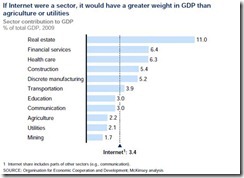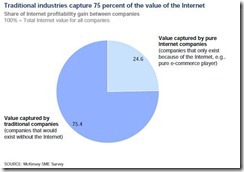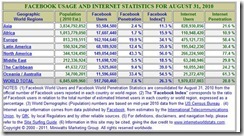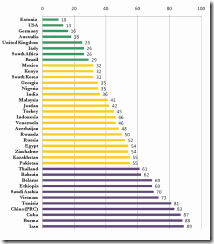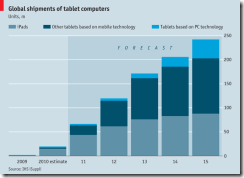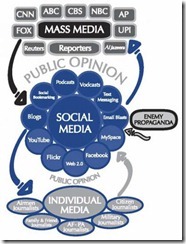“The Pen Is Mightier Than The Sword”- coined by Edward Bulwer-Lytton English author, (also attributed to Dr. Jose P. Rizal)
Any serious or prudent investors in the financial markets would normally try to look for ways to improve on one’s returns. That’s if one recognizes what is workable and what isn’t. Thus, the main task of prudent investors in the financial markets is to screen information and theories and test them, and apply those that would seem as the most cogent, accordingly.
But again this isn’t true for many as returns might seem as a secondary importance. That’s because these economic agents obstinately adhere to biased or selectively chosen data (selective perception) which they interpret as applying to the whole (fallacy of composition), fixate on what is current (survivalship bias) while ignoring the rest, apply misleading definitions and embrace self contradictory and inconsistent theories.
I am just repeating what I said before. Sometimes it takes a deluge of information before the message sinks in.
Ignorance versus foolishness
Ignorance is one thing, foolishness is another. People who fail based on ignorance could be looked upon with compassion. They perhaps hardly knew of the consequences of their actions, which were most likely guided by wrong quality or sources of information.
But it’s different when people lose despite being informed or forewarned. This may be called as doggedness or practising financial religion.
For instance, when people refuse to heed of the inherent risks of conflict of interests that may arise among interacting agents[1], they are likely to fall into the Agency problem trap. Information embellished with statistics and presented as facts could mislead investors. It’s clearly an intangible or unseen risk, that’s because investors are likely to be unaware of the underlying incentives behind these presentations, which may shape or influence the way we think and how we allocate our resources.
And for non-exclusive reasons, boom-bust cycle happens because of information too. Credit fuels greed which impels people to look for information that would confirm on their preconceived notions. Bias, thereby, seeks information or analysis which performs the way dopamine functions, to serve the pleasure centers. So like drugs, misleading information will always have a market.
Also, in as much as price distortions from government policies affect the way people think, these are likewise exhibited through literatures. That’s because the mainstream usually focuses on the symptoms which are read as the cause and transmitted to the public as valid information or facts. This is also because mainstream information caters to short term orientation. In short, boom bust cycles occur also when people gorge on too much of false information.
Stakeholder’s Problem, If Birds Can Write
Most have been unwittingly seduced to the oversimplification of reading current events into market prices, for the reason that being wrong may have little consequence to them. In short, it’s usually a stakeholder’s dilemma or stakeholder’s problem[2]—where the incentives to secure knowledge are driven by the degree of stakeholdings.
Take for instance, a person who dabbles with the stock market, as sideline or for entertainment, will likely have a lesser intensity of incentives to acquire knowledge relative to an individual who lives by the stock market. The latter’s perceived risk factor is greater than the former who has other lines of revenues.
The varying situational incentives, thus, become crucial factors in determining knowledge acquisition.
Yet luck also plays a crucial role. Because no matter how wrong one’s ideas can be, for as long as such errors are made on the side of the general trend where the market is headed, market trends eventually remedies on such errors. And as a result, false ideas could lead to a self-attribution or self serving bias which according to Wikipedia.org[3], people attribute their successes to internal or personal factors but attribute their failures to situational factors beyond their control.
And this also applies even in academics, where wrong models can be seen as “workable”.
Prodigious author of the bestselling book, the Black Swan, Mr. Nassim Taleb writes of a marvellous example of in his forthcoming book[4],
Think of the following event. A collection of priestly persons from Harvard or some such place lecture birds how to fly. The bird flies. They write books, articles, and reports that in fact the bird has obeyed them, an impeccable causal link. They even believe their own theories. Birds write no such books, conceivably because they are birds, so we never get their side of the story. Meanwhile, the priests broadcast theirs.
Behind Media’s Altruisms And Biased Information
And as stated above, the quality and source of information matters.
The most likely source of information are usually the popular ones, such as mainstream media. They cater too our brain’s desire to get fed with visible, emotional, sensational, shocking or graphic linkages.
Take for instance, in the event of a disaster, media routinely appeals to the public to ask for donations. They appeal to the emotions by advocating charity work for the unfortunate victims. Media outfits create an aura where they are seen as doing purely social work. They become instantaneous heroes especially when celebrities lead them.
But this is only half true, what’s not seen is that by connecting to the public’s emotions and wallets they increase viewership on their medium. And the key to their revenues—advertisement—largely depends on the number of audiences. So media’s missives have almost always been attuned towards winning the public’s viewership. It’s like politics in a private format.
Thus for media, intention can be interpreted two ways, social work to help the community or self interests camouflaged by altruism.
In covering political philosophy, this is the same manner why socialism sells, it appeals to emotional center of the brain but are bereft of how “intentions” parlay into reality.
In terms of investment, it’s also the been same. Most people are continually deceived by information aired or disseminated by the media and their cohorts of experts, which for most instances have little value or are irrelevant.
As Rolf Dobelli writes[5],
Out of the approximately 10,000 news stories you have read in the last 12 months, name one that – because you consumed it – allowed you to make a better decision about a serious matter affecting your life, your career, your business – compared to what you would have known if you hadn’t swallowed that morsel of news.
The point is: the consumption of news is irrelevant to the forces that really matter in your life. At its best, it is entertaining, but it is still irrelevant.
Bottom line: information is vital to one’s decision making process, whether applied to the financial markets or in many other vital aspects of life.
The beauty of today’s technological advances is that information is not restricted or centralized but operates from a free market competitive environment.
And I am just part of the multitude of lowly voices here in the cyberspace trying to speak out what I see as true.
And unknown to most, revolutions begins with ideas.
[1] See Dealing With Financial Market Information, February 27, 2010
[2] See Philippine Elections: Why I Will Vote For President "None Of The Above”, May 5, 2010
[3] Wikipedia.org, Self-serving bias
[4] Taleb, Nassim Nicolas, Birds Do Not Write Books on Birds, Chapter 8, Anti Fragility
[5] Dobelli Rolf Avoid News, Towards a Healthy News Diet Dobelli.com (hat tip Bryan Caplan)





